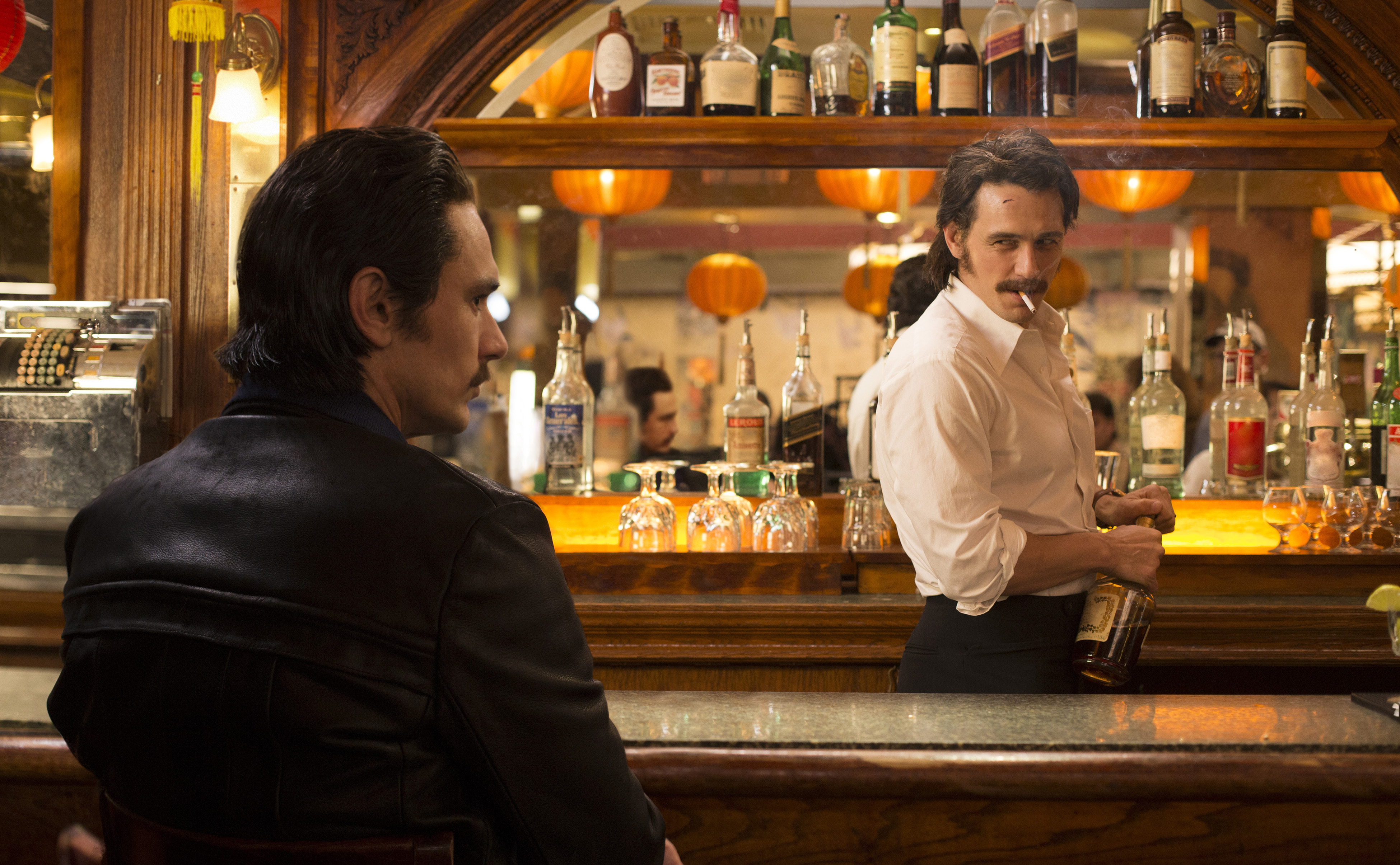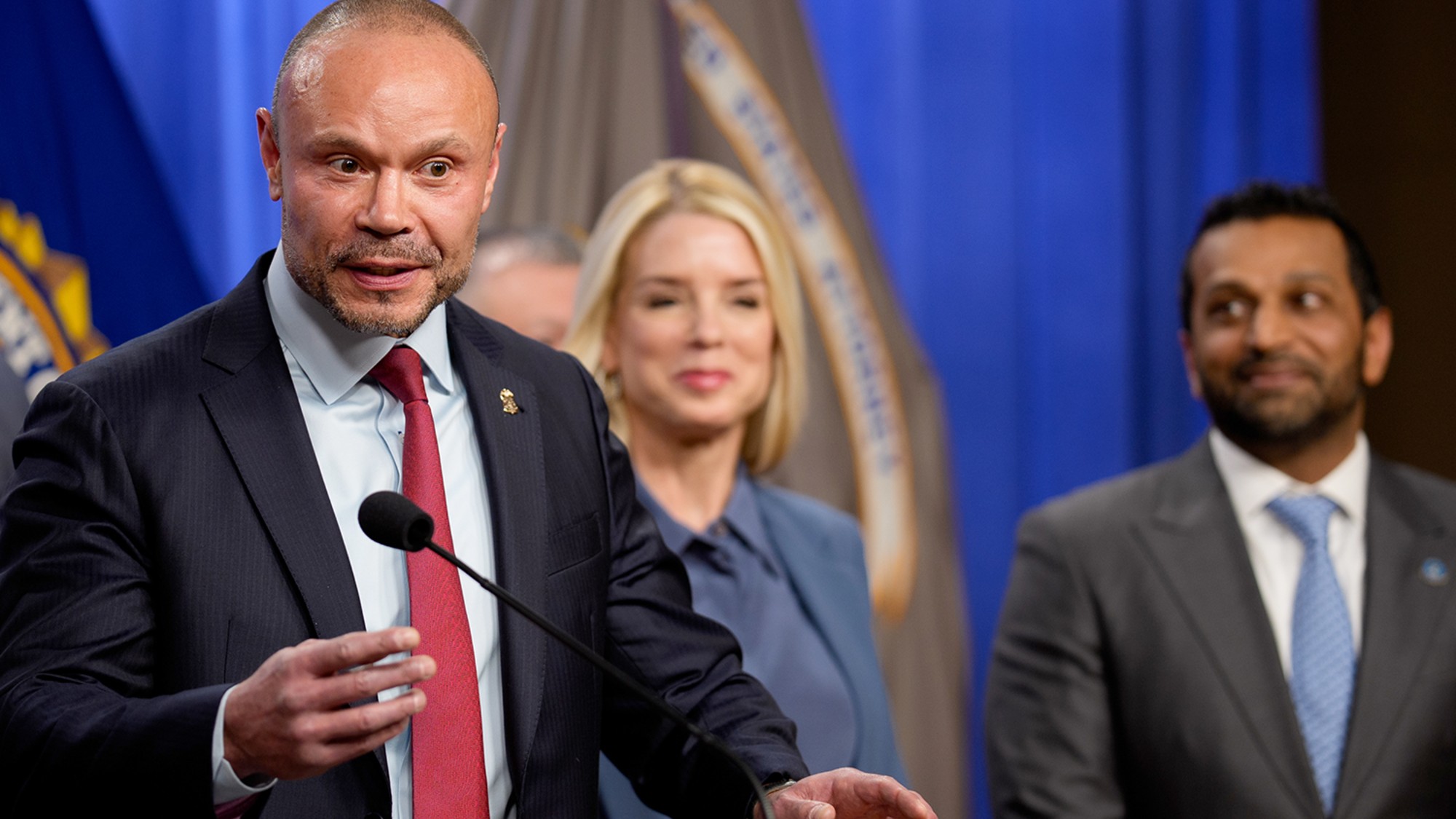There has never been a better time to be a bad actor
The golden age of TV is also the golden age of bad acting

The bad actors, where do they go? For decades, acting's worst performers have been kept safely out of view of the broader public, tucked away in community theaters, grindhouse releases, DIY martial arts movies, lower-tier sitcoms, and skin flicks. Bad acting was something viewers had to consciously seek; it was a thing to be discovered.
The rise of the streaming giants has changed all that. The number of scripted original series on TV — across all platforms, from broadcast to cable and streaming — has nearly doubled in six years, according to FX Research, with no equalizing drop in the number of wide release feature films. Last year there were 455 original series on TV; this year there are likely to be more than 500. Much of this growth has been driven by Netflix, Amazon, Hulu, and the other online services, which are on track to surpass the 93 series they collectively produced last year. FX president John Landgraf claims we're approaching "Peak TV" — but he first made the argument two years ago. The peak keeps getting adjusted higher.
This explosion in content has, we're often told, been a major boon for consumers. But it's also been good for actors — and bad actors in particular. As demand for acting grows, so do opportunities for people who are not very good at it. Bad actors have never had it better; never before have so many received so much for performing their jobs so poorly. Thanks to our unflagging thirst for new shows, more shows, better shows, any shows, the so-called golden age of TV is dissolving into a new golden age of bad acting.
The Week
Escape your echo chamber. Get the facts behind the news, plus analysis from multiple perspectives.

Sign up for The Week's Free Newsletters
From our morning news briefing to a weekly Good News Newsletter, get the best of The Week delivered directly to your inbox.
From our morning news briefing to a weekly Good News Newsletter, get the best of The Week delivered directly to your inbox.
What distinguishes today's bad acting epidemic from the blights of previous generations is that it sits at the center of popular culture. There are two types of bad acting: bad bad acting and reputable bad acting. Bad bad acting is the bad acting of Tommy Wiseau's The Room, of 1940s wrestling pictures, 1970s soft porn, exploitation cinema, Ed Wood, and Snakes on a Plane: a laugh, but not to be taken seriously. Reputable bad acting is more subtle, more arthouse, more respectable. Think of Jonathan Rhys Meyers's feature-length demonstration of misplaced syllable emphasis in Match Point — classic bad "good" acting — or the brittle-boned painter in Amélie. In French veteran Serge Merlin's overcooked performance, a character who is supposed to embody old-man kindliness instead ends up as a fur hat-wearing perv and neighborhood telescopist who uses the plot's main romance as a microwave for his own frozen sexuality.
It's this second type of bad acting — reputable bad acting — that's leading the present flowering of the form. No longer the preserve of amateur musicals and pornos, bad acting has come in from the margins. It enjoys both critical acclaim and mainstream popularity. Bad acting, in short, is now a legitimate pursuit of the professional cultural elite. True, this is nothing more than my opinion; whether something constitutes good or bad acting is entirely a matter of personal taste. But look at the recent output from the streaming services and you won't have to work hard to find actors actoring.
Jason Bateman and Laura Linney decorate Ozark with their dry mastery of the actor's craft, but they're badly let down by a couple of their colleagues. Sharon Blackwood's performance as the overbearing mother of a gormless local real estate agent is equal in ridiculousness to the manner of her character's death — mid-argument with her son, she sticks her fingers into her ears, walks onto the road shouting, "La la la," then gets cleaned up by a passing garbage truck — but it's Jason Butler Harner in the role of a gay FBI officer with sociopathic tendencies who goes most entertainingly off-piste. Whether darkly muttering, eyes closed, through a motel room blowjob or yelling "FAAAAHK!" after dragging his addict mother from her dealer's house, Harner delivers the most self-consciously actorly of bad acting jobs. Every one of his scenes bears the strain of a great effort to emote. Acting is the opposite of a high school math problem: you should never show your work. But in Ozark, all we ever see is Jason Butler Harner busting a gut to convince us he's something other than a paid performer.
Emotional inauthenticity of this variety is not the only sin committed in the new golden age of bad acting. Gestural gimmicks and silly voices are all present in equal, if not greater, number. Winona Ryder's crazy facial contortions — eyes dilating, nose pinched, mouth aquiver — gave the first season of Stranger Things much of its emotional vibrancy, but she returns to the gimmick so often in the second season it's as if she's permanently one frame away from dissolving into the "melting Nazi" gif from Raiders of the Lost Ark. Remove the dialogue and Ryder's scenes could easily pass as stock patient footage in an ad for medicine to fix opioid-induced constipation.
A free daily email with the biggest news stories of the day – and the best features from TheWeek.com
In The Deuce, another current darling of the critics, Maggie Gyllenhaal offers an expert demonstration in the use of physicality to convey mood and place. Each slouch of the shoulders, each shuffle of the feet embodies the sagged and addled decadence of 1970s New York. The problem comes when she starts talking. Gyllenhaal speaks the thoughts of Eileen, her ambitious middle-career prostitute, with the kind of sleepy high pitch and mishmash of phonetic cliches designed to mark the character as a resident of New York's outer-borough lower class. In the end, the accent ends up placing Eileen nowhere — both literally and figuratively. Is she a crusader against the exploitation of women or an amoral capitalist? From Brooklyn or Queens? It's never entirely clear.
As bad acting goes, this at least has the merit of nuance. The same could not be said of Gyllenhaal's co-star James Franco, who as The Deuce's mustachioed twins Vincent and Frankie Martino pulls out every fuhgeddaboudit stereotype in the actor's guide to playing a Bay Ridge Italian. Handed — inexplicably, despite a hint of gemini tension in the final episode — the opportunity to literally laugh at every one of his own jokes over 10 hours of scripted cable TV drama, Franco, arms spread wide, a what-me-worry smirk on his face, has a single, season-long response: "Ay-o!"
Nicole Kidman's accent in Big Little Lies is similarly comic, but for different reasons: Where Franco goes full Jersey Shore, Kidman often wanders between continents within the space of a single sentence. A couple of words in Australia, a few more in central California, over to something that sounds a little like South Africa, then back to Monterey, the show's nominal setting, by sentence's end: With surgery having placed most of her face out of action, Kidman leaves it to these strange vocal peregrinations to express her character's emotional range. Cutting short a Skype striptease for her horny and violent husband in one scene early in the series, she says, "Okay, that's enough noo-oddy boy." Neither the delivery nor the content of this line is surprising — a single Nicole Kidman vowel can hold more nationalities than the Paris climate accord — but watching it, I was left hoping the show's writers would call "basta," right there, on Kidman's character as well. Instead, she survived until season's end.
Countless other performances could be listed to illustrate this culture-wide enablement of our actors' hammiest instincts: Rufus Sewell's cartoon Nazi in The Man in the High Castle, Aziz Ansari's season-long interpretation of a sighing guy with a sad face in the second series of Master of None. The virus even seems to have infected Diane Keaton, though her battling performance in The Young Pope perhaps has more to do with the ambiguities of the show's script: trapped behind a pair of transition lenses in the role of the new pope's personal secretary, Keaton appears as unsure whether it's night or day as whether she's acting in a comedy or a drama. Naturally the acting gets even worse once we make it down to the lower reaches of the streaming repertoire, to shows like Marco Polo and Hemlock Grove and Flaked. But what's notable about this latest bloom is how virulently it's spread to the industry's prestige plots. Bad acting is everywhere now.
This is, to be clear, no bad thing. As the beast of TV content expands and the plots grow flabbier, it's becoming clear that bad acting — especially reputable bad acting, with its furrowed, methodly earnestness and pretensions to intellectual depth — can be just as enjoyable to watch as good acting. "Virtuosity is for the arrogant," says Jude Law in The Young Pope. But stunt voices, patchy accents, fake emotion, and — since acting is, first of all, a job — professional incompetence: These are pleasures open to everyone.
Aaron Timms is a Brooklyn-based writer. His writing has appeared in The Guardian, The Outline, The Daily Beast, and The Los Angeles Review of Books.
-
 Pipe bombs: The end of a conspiracy theory?
Pipe bombs: The end of a conspiracy theory?Feature Despite Bongino and Bondi’s attempt at truth-telling, the MAGAverse is still convinced the Deep State is responsible
-
 The robot revolution
The robot revolutionFeature Advances in tech and AI are producing android machine workers. What will that mean for humans?
-
 Health: Will Kennedy dismantle U.S. immunization policy?
Health: Will Kennedy dismantle U.S. immunization policy?Feature ‘America’s vaccine playbook is being rewritten by people who don’t believe in them’
-
 Walter Isaacson's 'Elon Musk' can 'scarcely contain its subject'
Walter Isaacson's 'Elon Musk' can 'scarcely contain its subject'The latest biography on the elusive tech mogul is causing a stir among critics
-
 Welcome to the new TheWeek.com!
Welcome to the new TheWeek.com!The Explainer Please allow us to reintroduce ourselves
-
 The Oscars finale was a heartless disaster
The Oscars finale was a heartless disasterThe Explainer A calculated attempt at emotional manipulation goes very wrong
-
 Most awkward awards show ever?
Most awkward awards show ever?The Explainer The best, worst, and most shocking moments from a chaotic Golden Globes
-
 The possible silver lining to the Warner Bros. deal
The possible silver lining to the Warner Bros. dealThe Explainer Could what's terrible for theaters be good for creators?
-
 Jeffrey Wright is the new 'narrator voice'
Jeffrey Wright is the new 'narrator voice'The Explainer Move over, Sam Elliott and Morgan Freeman
-
 This week's literary events are the biggest award shows of 2020
This week's literary events are the biggest award shows of 2020feature So long, Oscar. Hello, Booker.
-
 What She Dies Tomorrow can teach us about our unshakable obsession with mortality
What She Dies Tomorrow can teach us about our unshakable obsession with mortalityThe Explainer This film isn't about the pandemic. But it can help viewers confront their fears about death.